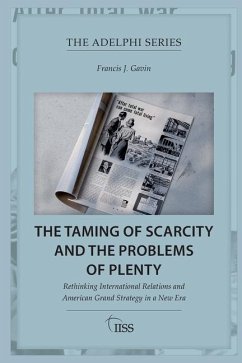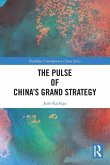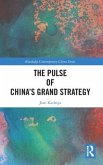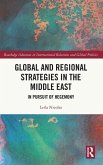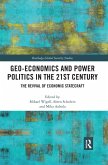The underlying structure, incentives and costs shaping international relations, state behaviour and the nature of power are profoundly different today to how they were in the past, in ways that are scarcely recognised and widely misunderstood. For much of history, world politics was marked by profound scarcity in resources, information and security. A series of historical revolutions has largely tamed this scarcity in ways few could have imagined. These revolutions, however, have generated new, potentially catastrophic challenges for the world - the problems of plenty.
In this Adelphi book, Francis J. Gavin argues that the institutions, practices, theories and policies that helped explain and largely tamed scarcity by generating massive prosperity, and which were sometimes used to justify punishing conquest, are often unsuitable for addressing the problems of plenty. Successful grand strategy in this new age of abundance requires new thinking. New conceptual lenses, innovative policies and processes, and transformed institutions will be essential for confronting and solving the problems of plenty, without undermining the expanding efforts against scarcity.
In this Adelphi book, Francis J. Gavin argues that the institutions, practices, theories and policies that helped explain and largely tamed scarcity by generating massive prosperity, and which were sometimes used to justify punishing conquest, are often unsuitable for addressing the problems of plenty. Successful grand strategy in this new age of abundance requires new thinking. New conceptual lenses, innovative policies and processes, and transformed institutions will be essential for confronting and solving the problems of plenty, without undermining the expanding efforts against scarcity.
'Gavin's brilliant and provocative analysis turns many conventional wisdoms about the evolution and trajectory of world politics on their head. His assessment is as relevant to our understanding of the distant past as it is to navigating the most critical challenges - from climate change to the US-China relationship - that lie before us. Agree or disagree, Gavin's insights must be taken seriously and reckoned with.'
Professor Colin Kahl, Steven C. Házy Senior Fellow, Center for International Security and Cooperation, Freeman Spogli Institute for International Studies, Stanford University; former Under Secretary of Defense for Policy, US Department of Defense (2021-23)
'Francis J. Gavin has created a powerful framework for understanding the radical shift in the fundamental nature of the problems the world is confronting; generating new assumptions, strategies and policy tools; and transforming local, national and global institutions. The problems of plenty demand nothing less.'
Anne-Marie Slaughter, CEO, New America; former Director of Policy Planning, US Department of State (2009-11)
'Francis J. Gavin's marvellous essay describes the most fundamental shift in international relations since the advent of the modern state system: from an international politics of inter-state competition in the face of scarcity, to a global order defined by "problems of plenty". Not only does Gavin show that these latter challenges are more pressing, more threatening and more existentially risky than traditional geopolitical challenges, he also persuasively argues that the international institutional architecture that was built to manage inter-state competition is fundamentally inadequate for managing the problems of plenty. He concludes with a bracing call for a revision to American grand strategy based on promoting a new geopolitics of positive-sum planetary cooperation.'
Nils Gilman, Senior Vice President of Programs, Berggruen Institute; Deputy Editor of Noema Magazine
'Francis J. Gavin tells an original and compelling story of how tectonic shifts in demography, health, information and international institutions, along with the increasing costs of great-power war, have all combined to move international politics away from scarcity to the new problems of plenty. But we risk disaster if our leaders continue to maintain outdated mindsets and strategies. An essential read for anyone who wants to understand the strategic imperatives of today - and tomorrow.'
Professor Janice Gross Stein, University Professor, Belzberg Professor of Conflict Management and Founding Director, Munk School of Global Affairs and Public Policy, University of Toronto
Professor Colin Kahl, Steven C. Házy Senior Fellow, Center for International Security and Cooperation, Freeman Spogli Institute for International Studies, Stanford University; former Under Secretary of Defense for Policy, US Department of Defense (2021-23)
'Francis J. Gavin has created a powerful framework for understanding the radical shift in the fundamental nature of the problems the world is confronting; generating new assumptions, strategies and policy tools; and transforming local, national and global institutions. The problems of plenty demand nothing less.'
Anne-Marie Slaughter, CEO, New America; former Director of Policy Planning, US Department of State (2009-11)
'Francis J. Gavin's marvellous essay describes the most fundamental shift in international relations since the advent of the modern state system: from an international politics of inter-state competition in the face of scarcity, to a global order defined by "problems of plenty". Not only does Gavin show that these latter challenges are more pressing, more threatening and more existentially risky than traditional geopolitical challenges, he also persuasively argues that the international institutional architecture that was built to manage inter-state competition is fundamentally inadequate for managing the problems of plenty. He concludes with a bracing call for a revision to American grand strategy based on promoting a new geopolitics of positive-sum planetary cooperation.'
Nils Gilman, Senior Vice President of Programs, Berggruen Institute; Deputy Editor of Noema Magazine
'Francis J. Gavin tells an original and compelling story of how tectonic shifts in demography, health, information and international institutions, along with the increasing costs of great-power war, have all combined to move international politics away from scarcity to the new problems of plenty. But we risk disaster if our leaders continue to maintain outdated mindsets and strategies. An essential read for anyone who wants to understand the strategic imperatives of today - and tomorrow.'
Professor Janice Gross Stein, University Professor, Belzberg Professor of Conflict Management and Founding Director, Munk School of Global Affairs and Public Policy, University of Toronto

